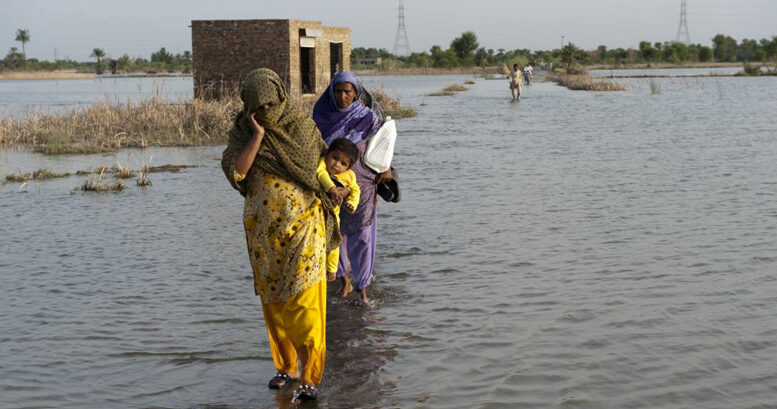Climate change is multiplying the inequality and discrimination faced by women and girls in the developing world, according to a new study from the Spanish non-governmental foundation Fundación Ecología y Desarrollo (ECODES, “Ecology and Development”).
Titled Perspectiva de género en las migraciones climáticas (“The Gender Perspective in Climate Migration”), the report released last week pinpoints how the growing crisis of water scarcity and flooding linked to climate change especially impacts women and girls, already the most-vulnerable demographic in the developing world and bound to suffer the effects of global warming more acutely in coming years.
► Download PDF of Gender & Climate Migration report [in Spanish]…
According to the report’s author, Beatriz Felipe, women and girls in the predominantly rural societies of developing countries are the family members most often responsible for ensuring the production of subsistence food or the care and maintenance of the survival of family members, including finding and fetching potable water for household use.
With 80 percent of households lacking running water in the developing world, women and girls must often travel considerable distance from the home find and fetch water. In countries suffering from drought, they must travel ever greater distances, taking more time that detracts from the time that women can spend caring for their children or the elderly or that girls have to spend on their education.
► News Sources: Europa Press, La Marea and Servimedia …
Speaking during the presentation of the report, the Spanish government’s Secretary of State for Migration, Consuelo Rumí, said the situation for women and girls in the developing world will only become more acute as the impacts of climate change are increasingly felt in the rise of sea level, desertification and relocation of populations away from high-risk, flood-prone areas.
In 2018, an estimated 17.2 million people worldwide were forced to leave their homes due to climate disasters. But the office of the UN’s Special Rapporteur on human rights and the environment estimates that by 2050, the effects of climate change will drive as many as 150 million people worldwide to leave their homes and migrate, either within their own countries or to other countries.
Countries and citizens in the fossil-fuel consuming developed world bear responsibility for such mass migration, said Rumí, noting that it could be described as “climate colonialism” with the most vulnerable people in the developing world bearing the worst consequences of climate change, despite having been those who have contributed least to causing it.
► Click to read more news from Spain about Climate Change …
Check out more news from Spain about:
► Animal Welfare ► Corruption/Transparency ► Discrimination ► Education ► Elections ► Environment & Sustainability ► Fair Trade & Development Aid ► Healthcare ► Historical Memory ► Housing & Homelessness ► Human Rights ► Labour & Unemployment ► LGBT+ ► Peace & War ► Politics ► Poverty ► Refugees & Migration ► Technology & Social Enterprise ► Women’s Rights

All images at ProgressiveSpain.com are the copyright of their respective authors/owners and are reproduced here for non-commercial, journalistic purposes in accordance with Fair Use doctrine. All other content is Copyright © 2015-2019 ProgressiveSpain.com and is licensed under a Creative Commons Attribution-NonCommercial-ShareAlike 4.0 International License.

